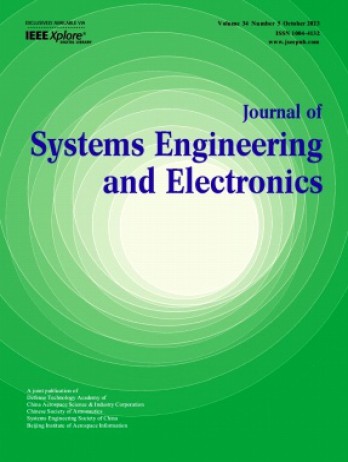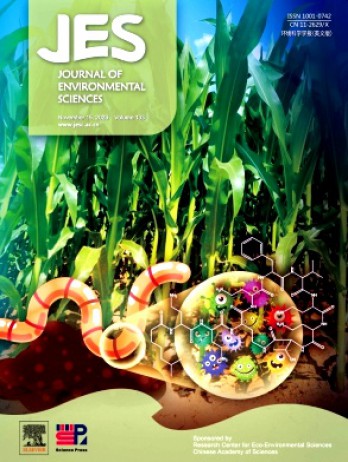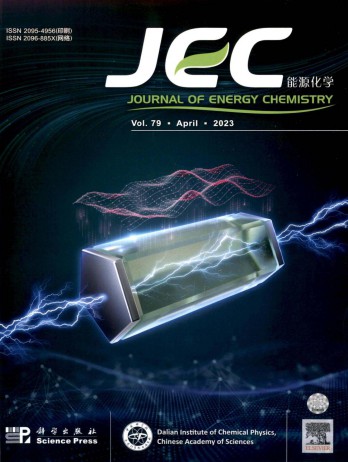一般情況下《Journal of Systems Engineering and Electronics》雜志投稿被拒,版面費有可能退還,具體取決于期刊的相關政策和實際情況,詳細信息可聯系雜志社或咨詢在線客服。
1. 投稿被拒但尚未支付版面費
如果稿件在審稿階段被拒,且尚未支付版面費,自然無需考慮退款問題。
2. 已支付版面費但被拒稿
一般可退:大多數期刊(包括《Journal of Systems Engineering and Electronics》雜志)在退稿后會退還版面費,尤其是如果期刊尚未進入排版或出版流程。
部分扣除審稿費:有些期刊可能會扣除部分審稿費用(如已進行外審),剩余部分退還。
3. 特殊情況
已排版但未出版:如果期刊已完成排版但尚未正式出版,部分期刊可能按比例扣除部分費用后退還剩余款項。
已出版后撤稿:如果論文已正式發表,通常不退版面費,因為費用已用于編輯、排版和出版流程。
4. 如何申請退款
聯系雜志社:通過郵箱或電話與《Journal of Systems Engineering and Electronics》雜志雜志社溝通,說明情況并申請退款。
提供支付憑證:如需退款,可能需要提供匯款記錄或發票信息。
《Journal of Systems Engineering and Electronics》雜志投稿建議:
Aims and scope
The journal, keeping abreast with the development trend of science and technology worldwide, reports the latest developments and achievements in systems engineering and electronics and related research areas, and encourages various academic views. The journal welcomes papers from a wide variety of countries.
The journal strives to publish high-quality papers reporting original work in both theoretical and practical research results within the journal scope, involving system analysis, system modeling and simulation, military system analysis, aircraft control, C3I, radar, information systems engineering, machine intelligence, artificial neural networks, information acquisition and processing, aerospace electronics, and other topics in all related fields.
Title
The title is centered on the page and should be short and concise. Please limit the title to a maximum length of 10 words. The author’s name follows and is also centered on the page. The author’s last name should be preceded by the other names spelled out in full. The author’s affiliation and address are also needed.
The corresponding author should be clearly indicated with the asterisk (i.e., *) and given on the bottom of the first page. Please provide the financial support acknowledgments (name and number) on the bottom of the first page.
Abstract
An abstract, not exceeding 200 words, is required for all papers. Acronyms and abbreviations are spelled out at first mention in the abstract. It should be a summary of the paper and not an introduction. Because the abstract may be used in abstracting journals, it should present concisely the purposes, methodology used, results obtained, and conclusions.
Keywords
The author must provide a list of keywords, up to a maximum of six. No acronyms and abbreviations should be used.
Text
Text should be typed in double-column. The introduction of paper should explain the nature of the problem, previous work, purpose, and contribution of the paper. It is assigned the number “1” and following sections are assigned number as needed. For example, the third section of a paper might be “3. Simulation results” headings. Acronyms and abbreviations are spelled out at first mention in the text, even they have already been defined in the abstract.
Figures and tables
The authors must ensure figures of sufficient quality and resolution. Figure captions appear below the figures. Figures should be numbered in the order they appear in the text. Table titles appear above the tables. Please verify that the figures and tables you mention in the text actually exist. When referring to a figure or a table in the text, use the abbreviation “Fig.” even at the beginning of a sentence, and do not abbreviate “Table”.
Equations
Number equations consecutively with equation numbers in parentheses flush with the right margin, as in (1). Be sure that the symbols in the equation have been defined before the equation appears or immediately following. When referring to “(1)”, do not use “Eq. (1)” or “equation (1),” except at the beginning of a sentence: “Equation (1) is ...”.
Conclusion
A conclusion must be included and should indicate clearly the advantages, limitations, and possible applications of the paper.
Acknowledgment
Individuals or units other than authors who were of direct help in the work should be acknowledged by a brief statement following the conclusion. This heading is not assigned a number.
References
Only articles that have been published may be included in the references. Each reference is referred to in the text by a number enclosed in a square bracket (i.e., [3]). References must be numbered and ordered according to where they are first mentioned in the paper. A reference list must be included using the following information as a guide.
Biographies
Short biographies (120-150 words) should be provided that detail the authors’ education, work histories and research interests as well as their E-mail. The authors’ full names are needed. Small (2.5 cm×3.5 cm), black-and-white and high- resolution (300 dpi) photos of each author should be included.
《Journal of Systems Engineering and Electronics》雜志是由中國航天科工防御技術研究院;中國宇航學會;中國系統工程學會主辦的科學學術期刊,創刊于1990年,雙月刊國內外公開發行,國際刊號:1004-4132,國內刊號:11-3018/N。
該雜志以反映科學改革與發展最新成果、探索科學規律為宗旨,學術視野覆蓋了系統工程、電子技術、軍用系統分析、防御電子技術、控制理論與實踐、軟件、算法與仿真、計算機開發與應用等多元領域。
《Journal of Systems Engineering and Electronics》雜志在學術界具有較高的影響力,其收錄與榮譽有:中國優秀期刊遴選數據庫、中國期刊全文數據庫(CJFD)、文摘與引文數據庫、維普收錄(中)、劍橋科學文摘、SCI 科學引文索引(美)、上海圖書館館藏、國家圖書館館藏、萬方收錄(中)、SA 科學文摘(英)、EI 工程索引(美)、知網收錄(中)等。無論是學術研究還是實踐指導,《Journal of Systems Engineering and Electronics》雜志都能提供可靠的支持。
聲明:本信息依據互聯網公開資料整理,若存在錯誤,請及時聯系我們及時更正。



